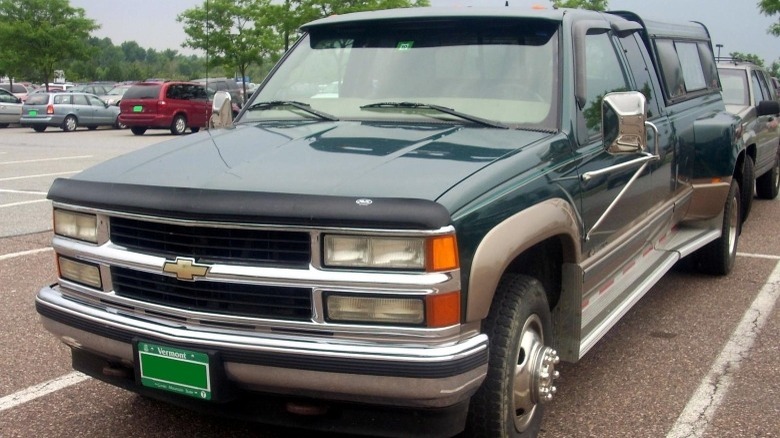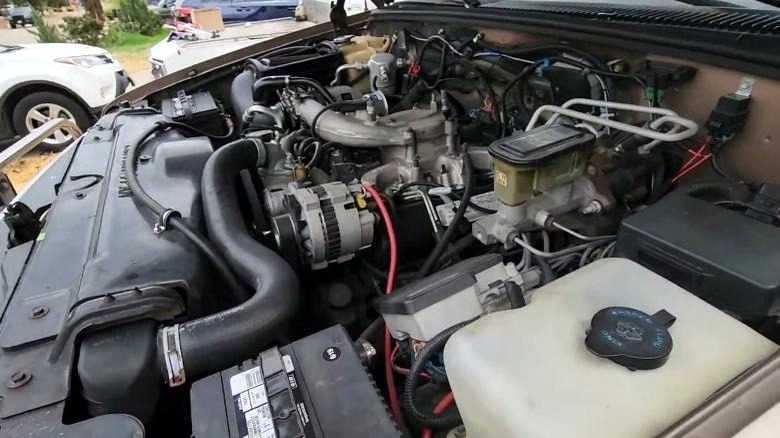All About The 6.5 Detroit Diesel Engine: Horsepower, Specs, & Common Issues
Since launching in 1992 as a replacement for the 6.2 diesel V8, the 6.5-liter GM Detroit diesel engine has had good years and bad years, and opinions on its merits have been just as mixed. Some view it as a dependable performer, and others consider it a badly flawed, undesirable powerplant. Whichever side of the divide you stand on, you'll agree that the GM-Detroit Diesel V8 engine was at least a necessary step toward the more widely acclaimed Duramax V8 engine.
In its inaugural year, the Detroit 6.5-liter engine was offered concurrently with the 6.2-liter diesel V8, before the latter was discontinued in 1993 after more than a decade of failing to keep pace with the more popular Ford indirect injection (IDI) and Dodge Cummins diesel engines. Like the 6.2-liter V8, the 6.5 Detroit diesel engine featured an overhead valve design with two valves per cylinder, and the heads and block were made out of cast iron. Following a less-than-impressive nine-year tenure, GM began phasing out the 6.5-liter 6.5 Detroit diesel from its lineup, starting with light and medium trucks in 2001, to make room for the Duramax diesel engine (although AM General still makes the engine for the HMMWV). The 6.5-liter 6.5 Detroit diesel was available in both turbocharged and naturally aspirated configurations.
The 6.5 Detroit diesel engine made between 180 and 215 hp
At launch, the 6.5 Detroit diesel engine produced 180 horsepower and 360 lb-ft of torque. By the time GM started moving away from the 6.5-liter V8, its output had climbed to 215 hp and 440 lb-ft of torque. While that relatively modest power means you won't find the 6.5 Detroit diesel V8 in any of the world's fastest diesel-powered cars, the engine wasn't built for sheer power output to begin with. Inherent limitations in its architecture meant it couldn't make substantial output, so it was engineered more as an efficient, hardworking powerplant instead.
True to its promise, the 6.5 Detroit diesel engine did offer decent fuel economy. Paired with a four-wheel drive system and four-speed automatic transmission, it gained 14 mpg in the city, 19 mpg on the highway, and 16 mpg combined in the 1995 Chevy 2500. In its least efficient four-speed automatic form, that return drops to 13 mpg in the city, 17 mpg on the highway, and 14 mpg combined. For their part, models with the five-speed manual transmission achieve 14 mpg in the city, 17 mpg on the highway, and 26 mpg combined. The 6.5-liter V8 also made good on its workhorse capabilities, with a tow rating of 7,500 pounds when under the hood of the 1995 GMC Sierra K2500. Throw it into the engine bay of a 1995 Chevy 2500 extended cab 4x4, and that rating is up to an even more impressive 8,500 pounds.
The 6.5 Detroit diesel engine was beset with problems
Although the 6.5 Detroit diesel engine fulfilled its intended purpose as an efficient workhorse, it was afflicted with many unsettling issues. One of the common problems owners faced with the 6.5 Detroit diesel V8 related to the crankshaft, which tended to break due to the harmonic balancer coming apart. The 6.5 Detroit diesel engine blocks are also prone to cracking, a result of poor casting quality.
Another noteworthy problem with the 6.5 Detroit diesel was oil pressure switch failure, which often resulted in hard starting. While hard starting is a common problem for diesel engines due to frigid weather conditions or prolonged inactivity, this particular Detroit 6.5-liter issue had nothing to do with either of those reasons. In the 6.5-liter V8, the oil pressure switch is responsible for sending signals to the oil pressure gauge as well as turning the lift pump on and off. When the oil pressure switch fails, it causes the lift pump to fail to provide adequate fuel supply pressure to the Stanadyne DS4 electronically controlled injection pump (in models so equipped).Without the proper 3-5 psi of fuel pressure from the lift pump, this made hard starting and other issues occur often. Overheating and cracked cylinder heads were also common with the 6.5 Detroit diesel engine.


